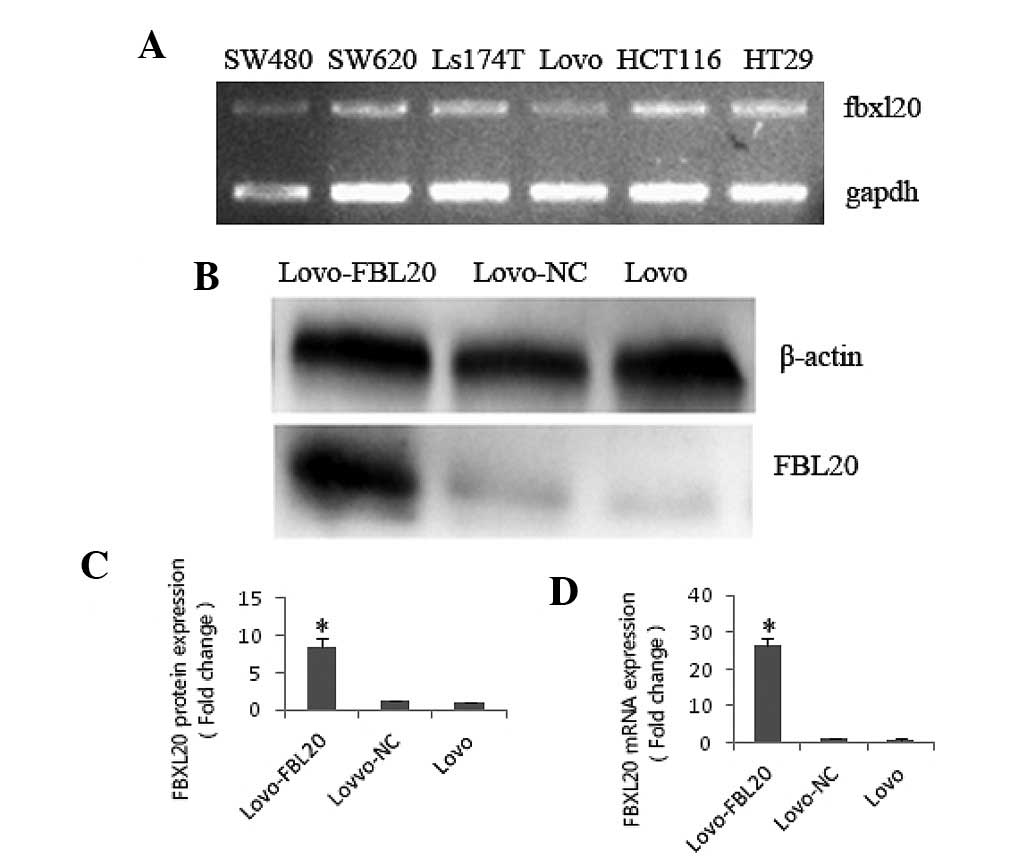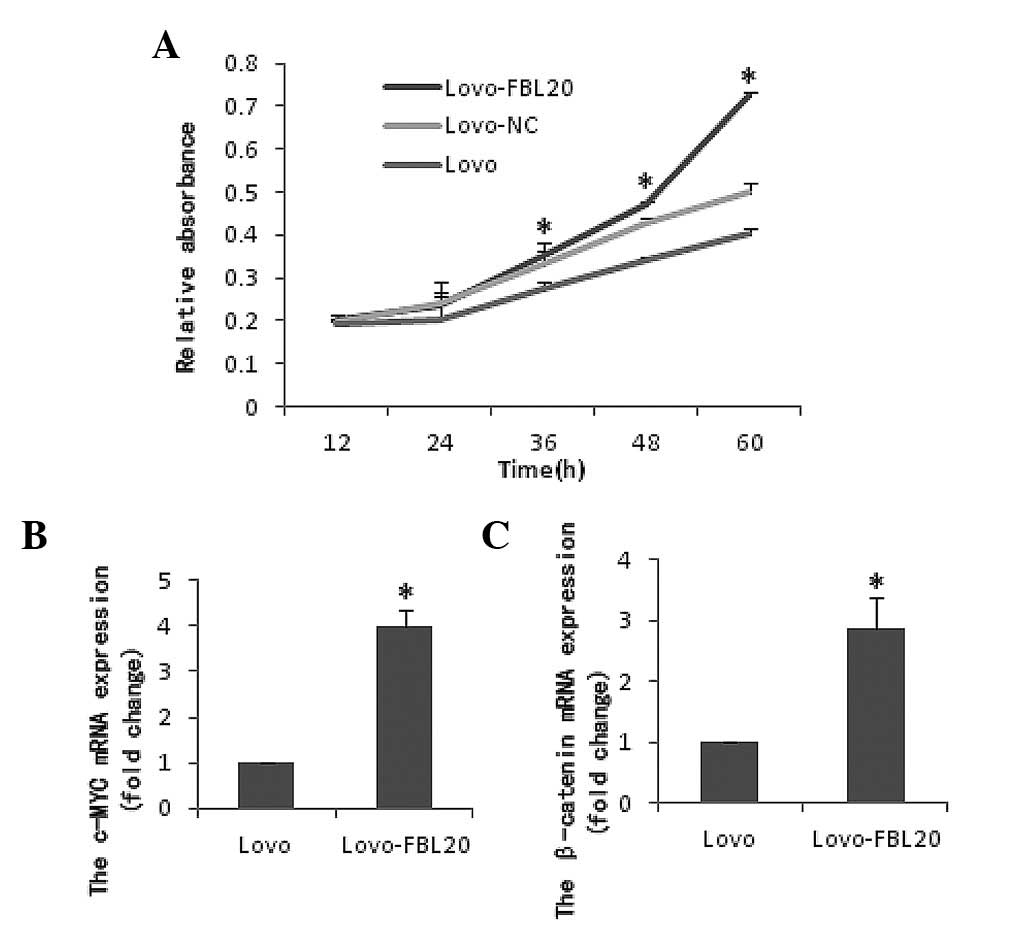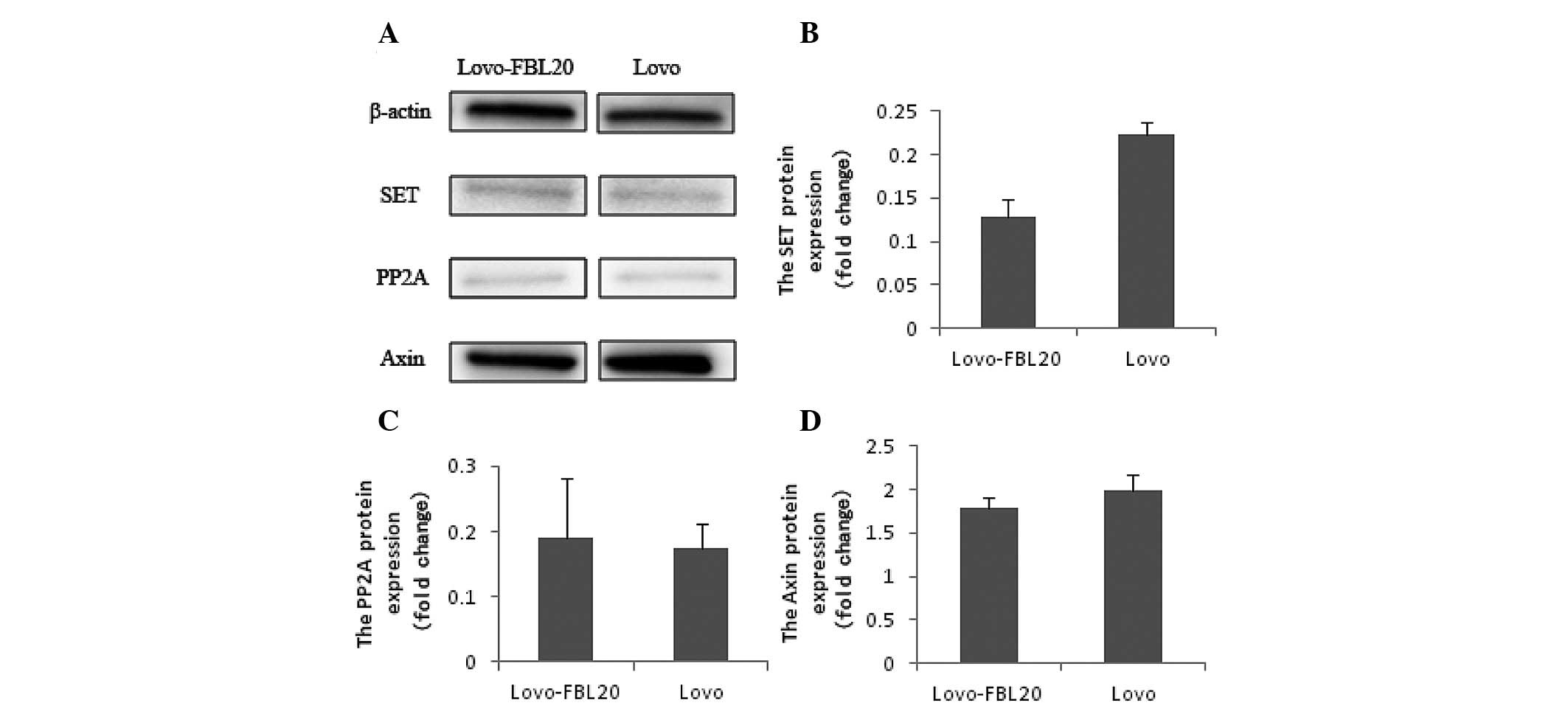|
1
|
Vonlaufen A, Troillet FX and Armenian B:
Screening for colorectal cancer: recommendations. Rev Med Suisse.
9:754–757. 2013.(In French).
|
|
2
|
Du XL, Cai Y and Symanski E: Association
between chemotherapy and cognitive impairments in a large cohort of
patients with colorectal cancer. Int J Oncol. 42:2123–2133.
2013.PubMed/NCBI
|
|
3
|
George B and Kopetz S: Predictive and
prognostic markers in colorectal cancer. Curr Oncol Rep.
13:206–215. 2011. View Article : Google Scholar : PubMed/NCBI
|
|
4
|
Ren F, Sheng WQ and Du X: CD33: a cancer
stem cells marker, is used in colorectal cancers. World J
Gastroentrol. 19:2603–2611. 2013. View Article : Google Scholar : PubMed/NCBI
|
|
5
|
Smith JC, Brooks L, Hoff PM, et al: KRAS
mutations are associated with inferior clinical outcome in patients
with metastatic colorectal cancer, but are not predictive for
benefit with cediranib. Eur J Cancer. 49:2424–2432. 2013.
View Article : Google Scholar : PubMed/NCBI
|
|
6
|
Haugen MH, Johansen HT, Pettersen SJ, et
al: Nuclear legumain activity in colorectal cancer. PLoS One.
8:e529802013. View Article : Google Scholar : PubMed/NCBI
|
|
7
|
Welcker M, Larimore EA, Frappier L and
Clurman BE: Nucleolar targeting of the fbw7 ubiquitin ligase by a
pseudosubstrate and glycogen synthase kinase 3. Mol Cell Biol.
31:1214–1224. 2011. View Article : Google Scholar : PubMed/NCBI
|
|
8
|
Miranda-Carboni GA, Krum SA, Yee K, et al:
A functional link between Wnt signaling and SKP2-independent p27
turnover in mammary tumors. Genes Dev. 22:3121–3134. 2008.
View Article : Google Scholar : PubMed/NCBI
|
|
9
|
Zhu JJ, Li K, Dong L and Chen Y: Role of
FBXL20 in human colorectal adenocarcinoma. Oncol Rep. 28:2290–2298.
2012.PubMed/NCBI
|
|
10
|
Amold HK, Zhang X, Daniel CJ, et al: The
Axin1 scaffold protein formation of a degradation complex for
c-Myc. EMBO J. 28:500–512. 2009. View Article : Google Scholar : PubMed/NCBI
|
|
11
|
Grim JE, Knoblaugh SE, Guthrie KA, et al:
Fbw7 and p53 cooperatively suppress advanced and chromosomally
unstable intestinal cancer. Mol Cell Biol. 32:2160–2167. 2012.
View Article : Google Scholar : PubMed/NCBI
|
|
12
|
Kiatagawa M, Hatakeyama A, Shirane M, et
al: An F-box protein, FWD1, mediates ubiquitin-dependent
proteolysis of beta-catenin. EMBO J. 18:2401–2410. 1999. View Article : Google Scholar : PubMed/NCBI
|
|
13
|
Micel LN, Tentler JJ, Smith PG and
Eckhardt GS: Role of ubiquitin ligases and the protesasome in
oncogenesis: novel targets for anticancer therapies. J Clin Oncol.
31:1231–1238. 2013. View Article : Google Scholar : PubMed/NCBI
|
|
14
|
Bromberg KD, Kluger HM, Delaunay A, et al:
Increased expression of the E3 ubiquitin ligase RNF5 is associated
with decreased survival in breast cancer. Cancer Res. 67:8172–8179.
2007. View Article : Google Scholar : PubMed/NCBI
|
|
15
|
Tsai YC, Mendoza A, Mariano JM, et al: The
ubiquitin ligase gp78 promotes sarcoma metastasis by targeting KAI1
for degradation. Nat Med. 13:1504–1509. 2007. View Article : Google Scholar : PubMed/NCBI
|
|
16
|
Kioras K, Konstantara A, Kotoula V, et al:
The prognostic significance of WNT pathway in surgically-treated
colorectal cancer: β-catenin expression predicts for disease-free
survival. Anticancer Res. 33:4573–4584. 2013.PubMed/NCBI
|
|
17
|
Freeman TJ, Smith JJ, Chen X, et al:
Smad4-mediated signaling inhibits intestinal neoplasia by
inhibiting expression of β-catenin. Gastroenterology. 142:562–571.
2012.PubMed/NCBI
|
|
18
|
Kanwar SS, Yu Y, Nautiyal J, et al: The
Wnt/beta-catenin pathway regulates growth and maintenance of
colonospheres. Mol Cancer. 9:2122010. View Article : Google Scholar : PubMed/NCBI
|
|
19
|
Liu KH, Huynh N, Patel O, et al:
P21-activated kinase 1 promotes colorectal cancer survival by
up-regulation by hypoxia-inducible factor-1α. Cancer Lett.
340:22–29. 2013.
|
|
20
|
Wu J, Xie N, Xie K, Zeng J, et al: GPR48,
a poor prognostic factor, promotes tumor metastatis and activates
β-catenin/TCF signaling in colorectal cancer. Carcinogenesis.
34:2861–2869. 2013.PubMed/NCBI
|
|
21
|
Guo S, Xu J, Xue R, et al: Overexpression
of A1BI correlates inversely with E-cadherin expression in
pancreatic adenocarcinoma and may promote lymph node metastasis.
Int J Clin Oncol. March 30–2013.(Epub ahead of print).
|
|
22
|
Oikawa T, Nakamura A, Onishi N, et al:
Acquired expression of NFATc1 downregulates E-cadherin and promotes
cancer cell invasion. Cancer Res. 73:5100–5109. 2013. View Article : Google Scholar : PubMed/NCBI
|
|
23
|
Huang C: Roles of E3 ubiquitin ligases in
cell adhesion and migration. Cell Adh Migr. 4:10–18. 2010.
View Article : Google Scholar : PubMed/NCBI
|
|
24
|
Li Q, He Y, Wei L, et al: AXIN is an
essential co-activator for the promyelocytic leukemia protein in
p53 activation. Oncogene. 30:1194–1204. 2011. View Article : Google Scholar : PubMed/NCBI
|
|
25
|
Yang LH, Xu HT, Han Y, et al: Axin
downregulates TCF-4 transcription via beta-catenin, but not p53,
and inhibits the proliferation and invasion of lung cancer cells.
Mol Cancer. 9:252010. View Article : Google Scholar : PubMed/NCBI
|
|
26
|
Ikeda S, Kishida M, Matsuura Y, et al:
GSK-3beta-dependent phosphorylation of adenomatous polyposis coli
gene product can be modulated by beta-catenin and protein
phosphatase 2A complexed with Axin. Oncogene. 19:537–545. 2000.
View Article : Google Scholar : PubMed/NCBI
|
|
27
|
Irie A, Harada K, Araki N and Nishimura Y:
Phosphorylation of SET protein at Ser171 by protein kinase D2
diminishes its inhibitory effect on protein phosphatase 2A. PloS
One. 7:e512422012. View Article : Google Scholar : PubMed/NCBI
|



















